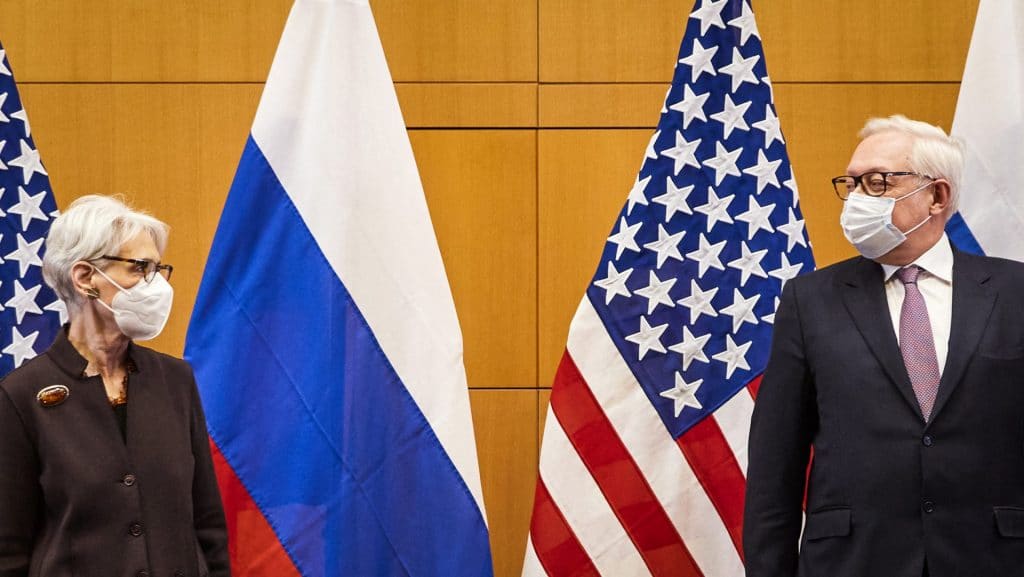
Putin’s demand for security guarantees: Not new and not to be taken literally, but not to be ignored
Posted: 17th January 2022
By Andrey A. Baklitskiy | January 14, 2022

US Deputy Secretary of State Wendy Sherman and Russian deputy Foreign Minister Sergei Ryabkov pose for pictures as they attend security talks on soaring tensions over Ukraine at the US permanent Mission, in Geneva, on January 10. “The conversation was difficult, it couldn’t have been easy,” Ryabkov was quoted as saying by the Interfax news agency after meeting Sherman during a working dinner in Geneva. (Photo by DENIS BALIBOUSE/POOL/AFP via Getty Images)
Russia sustains one of the world’s largest nuclear arsenals and the most powerful European conventional military force. Yet as Russia amasses military forces in the vicinity of its shared border with Ukraine, President Vladimir Putin has demanded long-term, legally binding security guarantees from Washington and NATO, who collectively wield a military force four times that of Russia’s and have the military budget comparable to the entire Russian gross domestic product.
A lot has been written about Russia’s call for security guarantees. They have been described as anything from a basis for a new, just security order in Europe to imperialist blackmail. The polarization is understandable. Moscow has proposed sweeping changes and supported its statement by military deployments and promises of “military-technical reciprocal measures” if its concerns were not addressed.